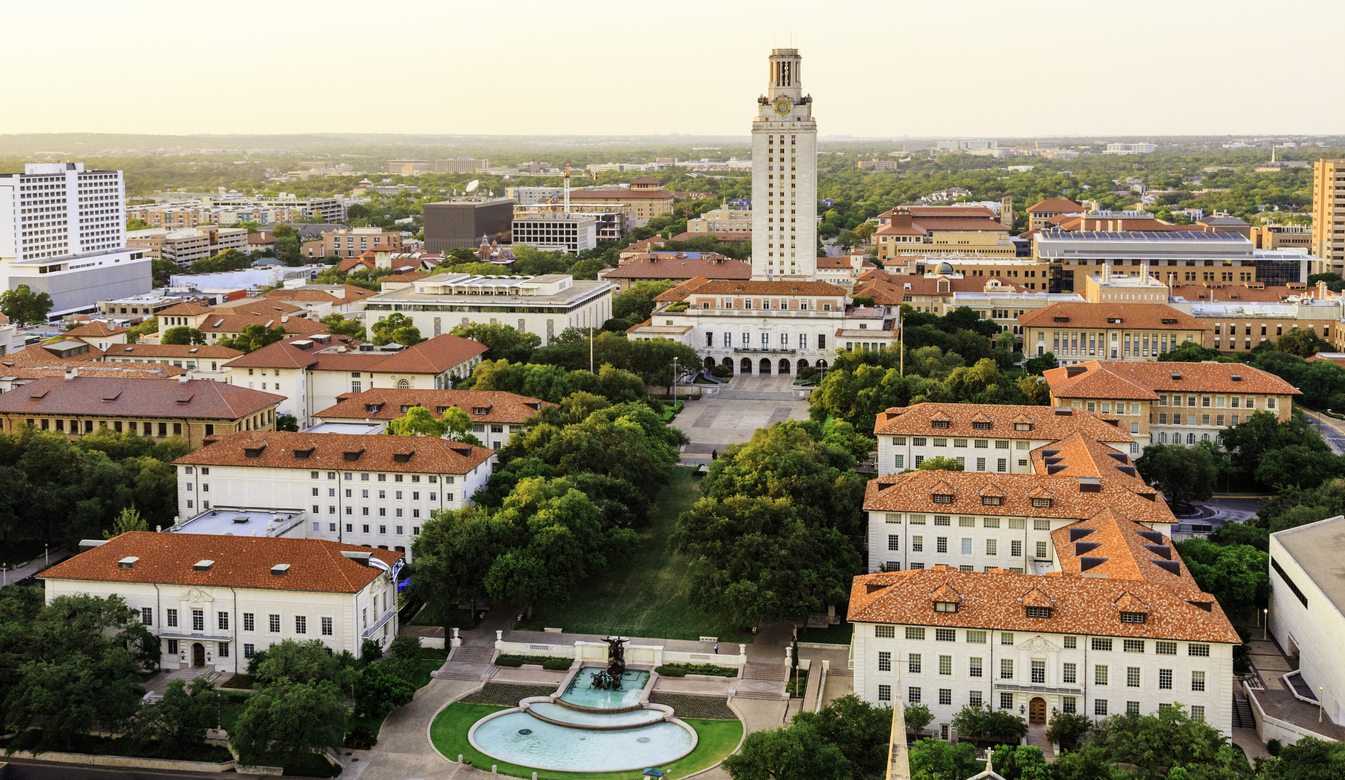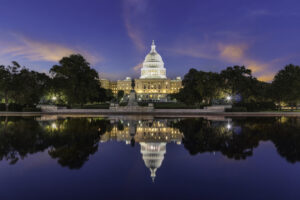The Scoop: Protests embroil college campuses, but you wouldn’t know it from their websites
Plus: ByteDance says it won’t sell TikTok; a man faces criminal charges for deepfakes of a Maryland principal.

Colleges ranging from Columbia University to the University of Southern California, from the University of Texas at Austin to Emory University, are seeing massive pro-Palestinian protest encampments. In many cases, police have been called in to break up tent cities, arresting more than 500 students nationwide.
You wouldn’t know that by looking at the websites and social media accounts of these universities.
Columbia, which was ground zero for many of the protests, has not issued an outward facing statement from its president since Tuesday. The homepage of the University of Austin at Texas, which saw 55 arrests on its campus, still proudly bears now-ironic advertising slogans of “What Starts Here Changes the World,” while statements from the president are buried unless one does some hunting.
Even when universities do issue statements, they’re often oblique and lacking clarity. USC canceled some parts of its commencement ceremony, yet save a few mentions of “security measures” and “free speech zones,” their statement announcing the change does little to explain why.
To be clear, these are not the only statements being issued by these universities. There is certainly non-public information being shared via emails and intranets; many spokespeople are engaging with both campus and the mainstream press.
Why it matters:
This is a trying moment for American universities. Since Oct. 7, they have been the central site for protests and dialogue around the Israel-Hamas war. And, as many presidents have pointed out, this is a key part of a college’s mission.
Yet those protests are spilling over into something bigger, disrupting campus life and prompting Jewish students to feel unsafe on campuses. While these issues may primarily impact students, faculty and other internal stakeholders, they are also important to families of students, members of the communities surrounding campuses, prospective students, alumni and donors. The dearth of official information available to them leads a vacuum that has been filled with rumors, including incorrect reports that the National Guard has been involved in campus security at both UT Austin and Columbia.
This is a painful moment for colleges attempting to balance free speech and the need to run an orderly campus that gives students the education they are paying for. Every move these universities are currently making will be dissected in a thousand ways. But transparency, clarity and honesty, even in the toughest moments, can help communicators rise above the crisis and serve as a single point of truth.
Editor’s Top Reads:
- TikTok’s parent company ByteDance wants to be crystal clear: they aren’t selling. In social media posts, the Chinese-owned company pushed back against reports that it might sell TikTok without the powerful recommendation algorithm that serves users just the right videos. “ByteDance doesn’t have any plans to sell TikTok,” it posted unequivocally. If it doesn’t sell within nine months to a year, it faces a ban in the United States. However, that timeline is certain to be mired with legal challenges that could stretch that timeline indefinitely. Many legal scholars are skeptical that the law will pass judicial review. In the meantime, check out our recommendations for your TikTok strategy.
- A high school athletics director from Maryland faces criminal charges for allegedly using artificial intelligence to make his principal appear to make racist, antisemitic remarks, NPR reported. Dazhon Darien is charged with stalking, theft, disruption of school operations and retaliation against a witness. The case has profound implications for the future of AI, demonstrating just how easy it is to make deepfakes of almost anyone. “”What’s so particularly poignant here is that this is a Baltimore school principal,” said Hany Farid, a digital forensics professor at the University of California, Berkeley. “This is not Taylor Swift. It’s not Joe Biden. It’s not Elon Musk. It’s just some guy trying to get through his day. It shows you the vulnerability of how anybody can create this stuff and they can weaponize it against anybody.” And that includes your organization. Make your deepfake plan now.
- Inflation remained stubbornly high in March, with all costs rising 2.7% year-over-year, CNBC reported. While the increase was higher than expected, it was only by 0.1%, and the markets showed little initial reaction. Experts say this further dampens the possibility of rate cuts in the near future, at least until the labor market softens somewhat. And consumers are still spending: personal spending rose 0.8% in March and personal income increased 0.5%. Overall, this economy is still unsettled, volatile and hot.
Allison Carter is editor-in-chief of PR Daily. Follow her on Twitter or LinkedIn.







